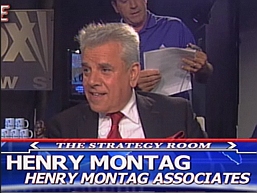

Several years ago, a well-known financial author asked me to write a chapter for her book, presenting what I thought was my best and most innovative use of life insurance.
When the book was reviewed, the reviewer’s sole comment was that my idea was the most creative use of life insurance he’d ever seen–if one could get past the emotional hurdle of profiting from the death of a loved one.
Over the years, I have often placed large amounts of life insurance as a means of providing a beneficiary with tax-free dollars that could be used to replace the family interest of a business owner’s partner, in the event that the partner passed away. In the last 32 years, whenever this situation arose, no one was ever upset when I delivered a check at claim time. In fact, everyone was quite happy when I came to the business or the remaining partner with sufficient money so that they could give their partner’s family a lump sum payment, in exchange for the value of their share of the business.
Because of these experiences, it occurred to me that there are only three instances when someone is allowed to have a beneficial interest in a life insurance contract on someone else’s life: when there is a partnership or shareholder agreement; when you owe the insured person money; and when the insured person is a family member. And since business people felt no shame when they owned life insurance on their business partner’s life, then perhaps a son or daughter need not feel funny about owning an insurance contract on and profiting from the death of a parent.
I soon began proposing to clients and friends alike that they consider having a discussion with their parents about the idea of owning a life insurance contract on their lives and paying a premium to an insurance company rather than depositing money into their current IRA.
For example, say you are 45 and have parents who are 70 and 68. Take the annual $5,000 deposit you make to your current IRA and compare it to an equivalent amount of life insurance you could purchase on one or both of your parents. Typically, if you were to deposit $5,000 per year and earned a 5% net gain after taxes, you would end up with $142,000 after 25 years.
However, if that same $5,000 were used to purchase a life insurance contract on a parent, it would provide a tax-free value of $277,000, starting from day one. Furthermore, if the insurance were placed on both parents–otherwise called a “second to die contract,” it would have a ultimate tax-free value of $411,000 at the death of the second parent.
The IRA projection in the above example assumes that for the stock market has a positive overall gain of at least 5% every year. But as we have just seen, the market can also be volatile and show dramatic losses. On the other hand, the life insurance gain is based on pure guarantees, regardless of what may happen in the stock market, or trends in interest rates, inflation, or unemployment. Based on one’s parents age and health, a premium can be calculated and then paid to an insurance company, guaranteeing a principal sum that will be paid out to one’s beneficiaries on a 100% tax-free basis.
The payout from a life insurance contract will always be larger than what would have been earned from a otherwise tax-deferred deposit to a traditional IRA. So many people now have the opportunity to fund their retirement through a lump sum inheritance. All they have to do is pay a small annual premium for a life insurance policy on your parent or parents –and get over the emotional hurdle of profiting from a parent’s death.
Remember the Alternative investment is a great gift Idea for the Holidays or anytime a Parent or Grandparent wishes to create a lump sum of Tax Free wealth for an Adult child or Grandchild.
———————————————————————-
About the Author: Henry Montag is an Independent Certified Financial Planner as well as a CLTC. He’s been in practice since 1976 with offices on Long Island, New York. He is a contributing writer for The Moneypaper, a national financial publication, and has been used as a source for Investors Business Daily, Long Island Business News, Newsday, Wall St Journal, The Moneypaper, Investment News, and Senior Lifestyles.
———————————————————————————-
Henry Montag, CFP, CLTC
The Omni
333 Earle Ovington Blvd
Uniondale Ny 11553
To learn more about Henry Montag: http://www.youtube.com/watch?v=yTpACuc33fg

Leave a Reply